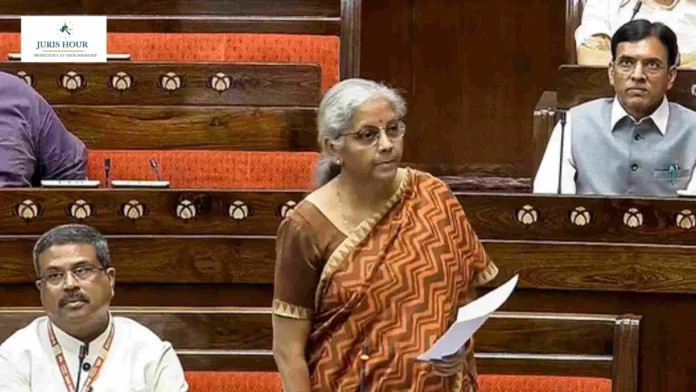Without acknowledging the long-standing demand of the Institute of Company Secretaries of India (ICSI), Finance Minister Nirmala Sitharaman today introduced the New Income Tax Bill in the Lok Sabha, leaving Section 515(3)(b) — the provision defining the term “Accountant” — completely unchanged.
Being a Chartered Accountant, my first instinct was to check this section, and indeed, there is no change in the definition. The bill continues to recognise only Chartered Accountants in practice, holding a valid certificate of practice from the Institute of Chartered Accountants of India (ICAI), as eligible for statutory certifications under the Act.
Section 515(3)(b) of the Income Tax Bill, 2025 states that an “accountant” means a Chartered Accountant (CA) as defined under section 2(1)(b) of the Chartered Accountants Act, 1949, who holds a valid certificate of practice under section 6(1) of that Act. However, this does not include, except for representing the assessee under sub-section (1), certain persons. In the case of a company, it excludes anyone who is not eligible to be appointed as the company’s auditor under section 141(3) of the Companies Act, 2013.
In other cases, it excludes the assessee themselves; any partner of a firm, or any member of an association of persons or a Hindu undivided family that is the assessee; specified related persons in the case of trusts or institutions; the person who is competent to verify the return for the assessee under section 263/265; any relative of the above persons; any officer or employee of the assessee; any partner or employee of such officer or employee; any person (or their relative or partner) who holds securities in the assessee exceeding the prescribed limits, owes money to the assessee, or has given guarantees to the assessee beyond the allowed limit; anyone having a prescribed business relationship with the assessee; and any person convicted of a fraud offence within the past 10 years.
ICSI’s Unheeded Plea
For months, ICSI has been lobbying for the inclusion of Company Secretaries (CS) within the ambit of “Accountant” in the new bill. The Institute argued that CS professionals today go far beyond secretarial work, handling compliance audits, risk management, and financial oversight — roles that directly intersect with tax governance.
In pursuit of this goal, ICSI engaged in sustained advocacy, holding consultations with Members of Parliament, senior bureaucrats, and the Select Committee reviewing the bill. The Institute emphasised that acknowledging CS professionals in tax law would promote inclusivity, strengthen corporate compliance, and align with India’s vision of “Viksit Bharat.”
Despite these efforts, the Select Committee rejected the proposal, stating that such a change would be a “policy shift” not within the intended scope of the Income Tax Bill, 2025, which focuses primarily on simplifying and modernising existing provisions from the Income-tax Act, 1961.
What Happens Next
The New Income Tax Bill will now be debated in Parliament and could be subject to amendments. However, for now, the government’s stance appears firm — the definition of ‘Accountant’ remains unchanged, effectively leaving ICSI’s long-standing demand unanswered.
While the bill promises a modernised and simplified tax regime, it also leaves open an unresolved question: whether India’s tax and compliance laws should evolve to reflect a broader set of professionals in governance roles, or maintain the exclusivity that has shaped the system for decades.
Read More: HUL Job Workers Liable for Excise Duty Before Opting for Area-Based Exemption: CESTAT

